The members of the Nordic Bishops’ Conference – covering the countries of Iceland, Norway, Denmark, Sweden and Finland – have written a pastoral letter looking ahead to Pope Francis’ visit to Lund and Malmö, as well as the state and future of ecumenical relations with the Lutheran church in their countries. They rightly indicate that the anniversary of the Reformation, which will begin with the events in Lund that the Pope will attend, is no reason to celebrate for Catholics.
My translation of the document, which generally aligns itself closely with ‘From Conflict to Communion’, the 1999 document in which the Catholics and Lutherans agreed on the doctrine of justification. My translation follows:
 “In 2017 we mark an event which has had great consequences for the Christian faith, in the first place in Europe. In the year 1517 Martin Luther initiated a process which became known in history as the Reformation and which, especially for our Lutheran fellow Christians represents an important moment in the development of their ecclesiastical tradition and identity. But since the Reformation would have been impossible without the Catholic basis, it is appropriate that we, as Catholic Christians, also think about it. That is already expressed in the document ‘From conflict to communion’, the result of dialogue in the Lutheran-Catholic Commission for the Unity of the Church. This tekst is directed towards a common commemoration, which is based on reflection rather than triumphalism.
“In 2017 we mark an event which has had great consequences for the Christian faith, in the first place in Europe. In the year 1517 Martin Luther initiated a process which became known in history as the Reformation and which, especially for our Lutheran fellow Christians represents an important moment in the development of their ecclesiastical tradition and identity. But since the Reformation would have been impossible without the Catholic basis, it is appropriate that we, as Catholic Christians, also think about it. That is already expressed in the document ‘From conflict to communion’, the result of dialogue in the Lutheran-Catholic Commission for the Unity of the Church. This tekst is directed towards a common commemoration, which is based on reflection rather than triumphalism.
Despite all explainable reasons, the Reformation caused a split in Christianity, which remains painful to this day. In the Nordic countries this split meant that the Catholic Church could only start again after many centuries. That is why the 500th anniversary of the event of the Reformation can not be observed as a celebration in the true sense. Rather it should be recalled in contrition. The process of reconciliation between the Catholic Church and the churches of the Reformation began many decades ago. But we can not tire of striving for the full unity in Christ.
At the start of the 16th century, the Catholic Church was in need of reform, something that not only Martin Luther, but also others acknowledged and expressed at that time. But instead of dealing with the necessary doctrinal questions, Christians of different confessions have instead done much harm to each other. At the closing of this year’s Week of Prayer for Christian Unity, Pope Francis prayed for “mercy and forgiveness for the unevangelical behaviour of Catholics towards other Christians”. In Sweden several Lutheran ministers have responded to that and also asked us Catholics for forgiveness.
The important questions is now, how we can continue together to come closer together in faith, in hope and in love? We, the Catholic bishops in the north of Europe, want to go on this path of reconciliation with our Lutheran brothers and sisters and do everything to promote unity.
Ecclesia semper reformanda
The Church must always let herself be converted and renewed by Christ. We are indeed a holy people, but a people of sinners on pilgrimage to eternity. Conversion, contrition and maturing in the faith are important stations on this path. Through the Second Vatican Council, the Catholic Church opened herself to many things that are also important to Lutheran Christians, for example the role of Holy Scripture and the meaning of the priesthood of all baptised. Thus, many difference have actually disappeared.
What still divides is, among other things, the sacramentality of the Church, as well as the understanding of the sacrament and the office. As Catholics we believe that the Church is the fundamental sacrament in which the incardinated word becomes present through the sacraments, in order to unite with us in love and transform us in Himself.
At the same time we see that many faithful Lutheran Christians become increasingly open to these aspects. A questions that remains pending and which is painfully felt on both sides is that of the common Eucharist. As much as this desired is justified, the unity of the Lord’s Table must also reflect the full unity in faith.
The Petrine office is also difficult to understand for many Lutheran Christians. But the personality of Pope Francis has made it more understandable. Pope Saint John Paul II already invited all non-Catholic Christians to think about other ways of exercising the Petrine office (Ut Unum Sint, N.95).
Traditionally, the role of Mary and the saints has also been contentious. But among many non-Catholic Christians the meaning of Mary as the Mother of God and example in faith is being re-acknowledged.
Despite the mutual approach in question of doctrine, greater differences in questions of ethics and morality have recently appeared. But even when these make the dialogue in some respects more difficult, it should not be given up.
Definition of the Christian faith
In all ages Christians have formulated teachings to clearly define doctrine, distinguish them from false ideas or to convey them intelligebly. Often such formulations evolved into bones of contention, which for a long time created great frontlines between Christians. The principles of the reformers were similarly divided for many centuries. It is nevertheless fruitful, also for Catholics, to constructively engage with them.
Sola fide
The faith is undoubtedly necessary for justification. We share the central mysteries of the faith – for example, about the Trinity, about Jesus Christ, about salvation and justification – with our Lutheran brothers and sisters. We rejoice in this unity of faith which is based in baptism and expressed in the joint declaration about justification. That is why it is our mission to be witnesses of these truths of faith in our secular society. In our Nordic countries, where few practice their faith, it is important to proclaim the good news together and with one voice.
Sola Scriptura
Only through Holy Scripture can we receive the full revelation about the salvation which is offered to us in Christ. This revelation in received and shared in the Church. Through the teaching office of the Church this living tradition in Holy Scripture is codified. For us Catholics Church, teaching, tradition and Scripture belong together. In the Church and with the Church, Scripture is opened for us. In this way the faith becomes ever more alive for us. Recently the number of Lutheran Christians who agree with us believe that Scripture and the tradition of the Church are closely connected, has been on the rise.
Sola gratia
“Everything is mercy”, the saintly Doctor of the Church Thérèse of Lisieux, who can be considered as the Catholic answer to Martin Luther, says. Without God’s mercy we can do nothing good. Without His mercy we can not come to eternal life. Only through God’s mercy can we be justified and holy. Mercy can truly transform us, but we must also respond to this mercy and work alongside it. In the Mother of God, Mary, full of mercy and immaculate, we see how much can God can do in a person.
For many Lutheran Christians it is still difficult to agree with this truth. But we also see that many of them are open to similar questions about growth in prater and in holiness.
Simul iustus et peccator
We are all at the same time justified and sinners. As Catholics we believe that we are really sinners; but through the mercy of God we can receive forgiveness of all guilt in the Sacrament of Reconciliation. As baptised Christians we are called to holiness. The Church is a school of holiness. The saints, who we can ask to intercede for us, are shining examples and role models of this holiness. One of these role models is a woman from our countries, Saint Elisabeth Hesselblad, who was recently canonised. She is an incentive to all of us to go the way of holiness more consciously.
We see that many Lutherans are also open to the saints, such as, for example, Saint Francis of Assisi and Saint Mother Teresa of Calcutta. In our secularised world we need such witnesses of faith. They are living and credible witnesses of our faith.
Martyrium
We know that also in our time many Christians are persecuted for their faith and that there are also many blood witnesses. Martyrdom unites Christians from various churches. We think of all Christians, also in the Middle East, who are persecuted and yet remain true to Christ and His Church. Their example also strengthens us in our faith. Many Christians from these countries have also come to us in the north. it is therefore important that we, all Christians in our countries, maintain, protect and deepen what we share in faith. Then we can also increasingly give and common witness of the risen Lord.
Future perspectives
The joint declaration ‘From conflict to communion’ closes with five ecumenical imperatives, suggested to us Catholics and Lutherans to take further steps on the common way to unity. They are:
- Beginning from a perspective of unity and not of division, and promoting what we have in common.
- At the same time allowing oneself to be transformed by the witness of the other.
- Committing oneself to the search for visible unity.
- Rediscovering jointly the power of the Gospel of Christ for our time.
- Witness together of the mercy of God in proclamation and service to the world.
Also when these five imperatives speak of great and not always simple concerns, their message is clear, but only when we devote outself completely to Christ and together rediscover the power of the Gospel (cf. 4th imperative).
We are happy and thank God that the Holy Father, Pope Francis, will be coming to Lund on the occasion of the commemoration of the Reformation, to strengthen us in faith.
We therefore invite all Catholics to accompany the preparations for the papal visit with their prayer and to participate in as great a number as possible in both the ecumenical meeting in Malmö Arena and the Mass in Swedbank Stadion. In that way we will show both the joy, as Catholics, of being with Pope Francis, and also respect for the identity of our Lutheran fellow Christians, grown from the Reformation. Despite the still existing differences we are convinced, confident in the mercy of God, that ways towards common unity can be found.
On the Feast of St. Teresa of Avila, 15 October 2016
+ Czeslaw Kozon, Bishop of Copenhagen
+ Anders Arborelius OCD, Bishop of Stockholm
+ Bernt Eidsvig Can. Reg, Bishop of Oslo, Administrator of Trondheim
+ David Tencer OFM Cap, Bishop of Reykjavik
+ Teemu Sippo SCJ, Bishop of Helsinki
+ Berislav Grgic, Bishop-Prelate of Tromsø
+ Gerhard Schwenzer SS.CC., Bishop emeritus of Oslo”
 ^Bishops Grgic, Sippo, Eidsvig, Kozon, Arborelius and Tencer, with Sr Anna Mirijam Karschner CPS, the general secretary of the Nordic Bishops’ Conference.
^Bishops Grgic, Sippo, Eidsvig, Kozon, Arborelius and Tencer, with Sr Anna Mirijam Karschner CPS, the general secretary of the Nordic Bishops’ Conference.
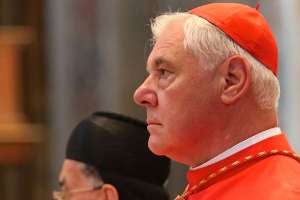 On Friday, Cardinal Gerhard Müller, former prefect of the Congregation for the Doctrine of the Faith and now a sort of free-roaming cardinal with no specific mission, issued a “Manifesto of Faith“. As he explains in the opening paragraphs he did so on the request of various people, both clergy and laity, in order to provide some measure of clarity to the confusion that exists about Catholic doctrine. Without doubt, we must understand this to be based in the different interpretations of recent papal teachings regarding such varied topics like marriage, sexuality and ecumenism. The teachings themselves may not be confusing, but their communication and interpretation most definitely are. But Cardinal Müller’s reasons go beyond this, and back over past decades and the formation, or lack thereof, of the faithful on matters of conscience, the nature of Christ, the Church, the sacraments, morality and eternal life.
On Friday, Cardinal Gerhard Müller, former prefect of the Congregation for the Doctrine of the Faith and now a sort of free-roaming cardinal with no specific mission, issued a “Manifesto of Faith“. As he explains in the opening paragraphs he did so on the request of various people, both clergy and laity, in order to provide some measure of clarity to the confusion that exists about Catholic doctrine. Without doubt, we must understand this to be based in the different interpretations of recent papal teachings regarding such varied topics like marriage, sexuality and ecumenism. The teachings themselves may not be confusing, but their communication and interpretation most definitely are. But Cardinal Müller’s reasons go beyond this, and back over past decades and the formation, or lack thereof, of the faithful on matters of conscience, the nature of Christ, the Church, the sacraments, morality and eternal life.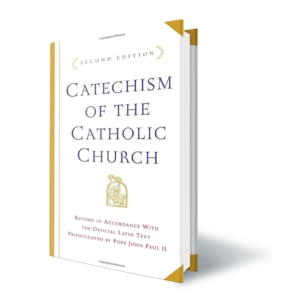 The manifesto is in the first place a summary of the Catechism of the Catholic Church, at least regarding the topics discussed. It is stuffed with references to paragraphs from the document, which aims to summarise the faith, and as such can serve as a helpful reminder of what it is that we confess as Catholics and how that affects our spiritual and daily life. Cardinal Müller also offers a few interpretations and explanations, which are all the interpretations of Tradition, communicated over the years and centuries by popes and theologians alike. Until those interpretations, for example that divorced and civilly remarried faithful can not receive Communion, are changed, they stand. They are what we are beholden to as Catholics. And, despite footnotes and desires expressed in interviews, under Pope Francis no steps have yet been taken to change this.
The manifesto is in the first place a summary of the Catechism of the Catholic Church, at least regarding the topics discussed. It is stuffed with references to paragraphs from the document, which aims to summarise the faith, and as such can serve as a helpful reminder of what it is that we confess as Catholics and how that affects our spiritual and daily life. Cardinal Müller also offers a few interpretations and explanations, which are all the interpretations of Tradition, communicated over the years and centuries by popes and theologians alike. Until those interpretations, for example that divorced and civilly remarried faithful can not receive Communion, are changed, they stand. They are what we are beholden to as Catholics. And, despite footnotes and desires expressed in interviews, under Pope Francis no steps have yet been taken to change this. Sister Helen Prejean, renowned American anti-death penalty advocate,
Sister Helen Prejean, renowned American anti-death penalty advocate,  Archbishop Luis Ladaria Ferrer, soon to be a cardinal, took over the reins at the CDF after Cardinal Gerhard Müller was let go about a year ago. And since then, the Congregation published two major texts: Placuit Deo on Christian salvation, in February, and Oeconomicae et pecuniariae quaestiones on ethics in economy (published jointly with the Dicastery for Integral Human Development), in May. In comparison, that is the same number of documents released during the entire period that Cardinal Müller headed the CDF, from 2012 to 2017.
Archbishop Luis Ladaria Ferrer, soon to be a cardinal, took over the reins at the CDF after Cardinal Gerhard Müller was let go about a year ago. And since then, the Congregation published two major texts: Placuit Deo on Christian salvation, in February, and Oeconomicae et pecuniariae quaestiones on ethics in economy (published jointly with the Dicastery for Integral Human Development), in May. In comparison, that is the same number of documents released during the entire period that Cardinal Müller headed the CDF, from 2012 to 2017.
 “Despite all the good intentions of the spouses and in spite of all marriage preparation, it does happen that relationships fail. People find themselves faced with the debris of their relationship-based lives. They suffer because of their failure to fulfill their ideal of a livelong love and relationship. To their own doubts more than enough economic concerns are often added. Especially affected are the children of a failed relationship. In this plight, it is the Church’s duty to accompany people and support them. In many cases this service is provided by the Church’s counselling centres and single-parent ministries. But in daily pastoral care it is necessary to have an even more open ear and heart, thus “encouraging openness to grace” (AL, n. 37).
“Despite all the good intentions of the spouses and in spite of all marriage preparation, it does happen that relationships fail. People find themselves faced with the debris of their relationship-based lives. They suffer because of their failure to fulfill their ideal of a livelong love and relationship. To their own doubts more than enough economic concerns are often added. Especially affected are the children of a failed relationship. In this plight, it is the Church’s duty to accompany people and support them. In many cases this service is provided by the Church’s counselling centres and single-parent ministries. But in daily pastoral care it is necessary to have an even more open ear and heart, thus “encouraging openness to grace” (AL, n. 37).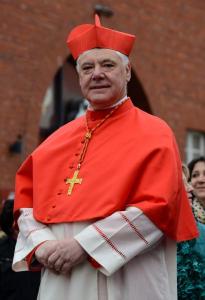 Another German bishop had a different focus in a recent interview. Cardinal Gerhard Müller, the Prefect for the Congregation for the Doctrine of the Faith, spoke about the interpretation of Amoris laetitia in an interview, of which Sandro Magister has
Another German bishop had a different focus in a recent interview. Cardinal Gerhard Müller, the Prefect for the Congregation for the Doctrine of the Faith, spoke about the interpretation of Amoris laetitia in an interview, of which Sandro Magister has  “In 2017 we mark an event which has had great consequences for the Christian faith, in the first place in Europe. In the year 1517 Martin Luther initiated a process which became known in history as the Reformation and which, especially for our Lutheran fellow Christians represents an important moment in the development of their ecclesiastical tradition and identity. But since the Reformation would have been impossible without the Catholic basis, it is appropriate that we, as Catholic Christians, also think about it. That is already expressed in the document ‘From conflict to communion’, the result of dialogue in the Lutheran-Catholic Commission for the Unity of the Church. This tekst is directed towards a common commemoration, which is based on reflection rather than triumphalism.
“In 2017 we mark an event which has had great consequences for the Christian faith, in the first place in Europe. In the year 1517 Martin Luther initiated a process which became known in history as the Reformation and which, especially for our Lutheran fellow Christians represents an important moment in the development of their ecclesiastical tradition and identity. But since the Reformation would have been impossible without the Catholic basis, it is appropriate that we, as Catholic Christians, also think about it. That is already expressed in the document ‘From conflict to communion’, the result of dialogue in the Lutheran-Catholic Commission for the Unity of the Church. This tekst is directed towards a common commemoration, which is based on reflection rather than triumphalism. ^Bishops Grgic, Sippo, Eidsvig, Kozon, Arborelius and Tencer, with Sr Anna Mirijam Karschner CPS, the general secretary of the Nordic Bishops’ Conference.
^Bishops Grgic, Sippo, Eidsvig, Kozon, Arborelius and Tencer, with Sr Anna Mirijam Karschner CPS, the general secretary of the Nordic Bishops’ Conference.
 With the appointment of Bishop Heiner Koch to Berlin, the German capital has an archbishop again after an almost eleven-month vacancy. He leaves the Diocese of Dresden-Meißen, a suffragan of Berlin, vacant after less than two-and-a-half years, making it on of two empty sees in Germany, the other being Limburg.
With the appointment of Bishop Heiner Koch to Berlin, the German capital has an archbishop again after an almost eleven-month vacancy. He leaves the Diocese of Dresden-Meißen, a suffragan of Berlin, vacant after less than two-and-a-half years, making it on of two empty sees in Germany, the other being Limburg. The new archbishop studied Catholic theology, philosophy and pedagogy at the University of Bonn and is a Doctor of Theology. After his ordination, he was attached to parishes in Kaarst and in Cologne itself (at the cathedral since 1993). He was also school pastor at the Heinrich Heine University in his native Düsseldorf, and in 1989 he started working in the vicariate general of the Archdiocese of Cologne, which probably set him on track to become a bishop. Made a Chaplain of His Holiness in 1993 and Honorary Prelate in 1996, now-Msgr. Koch was made the subsitute for the vicar general in 2002. In the same year he led the preparations for World Youth Day 2005, which took place in 2005.
The new archbishop studied Catholic theology, philosophy and pedagogy at the University of Bonn and is a Doctor of Theology. After his ordination, he was attached to parishes in Kaarst and in Cologne itself (at the cathedral since 1993). He was also school pastor at the Heinrich Heine University in his native Düsseldorf, and in 1989 he started working in the vicariate general of the Archdiocese of Cologne, which probably set him on track to become a bishop. Made a Chaplain of His Holiness in 1993 and Honorary Prelate in 1996, now-Msgr. Koch was made the subsitute for the vicar general in 2002. In the same year he led the preparations for World Youth Day 2005, which took place in 2005.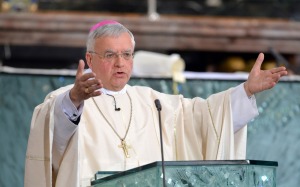 The Synod, then… In the entire saga about the German bishops and the Synod, Archbishop Koch has been one of the main players. He will attend the Synod with Osnabrück’s Bishop Bode and Cardinal Marx, and he also took part in what some have called the “shadow Synod” in Rome with representatives of the French and Swiss episcopates. But it is unfair to call the archbishop a liberal in matters of marriage, family and sexuality. In 2012, he
The Synod, then… In the entire saga about the German bishops and the Synod, Archbishop Koch has been one of the main players. He will attend the Synod with Osnabrück’s Bishop Bode and Cardinal Marx, and he also took part in what some have called the “shadow Synod” in Rome with representatives of the French and Swiss episcopates. But it is unfair to call the archbishop a liberal in matters of marriage, family and sexuality. In 2012, he 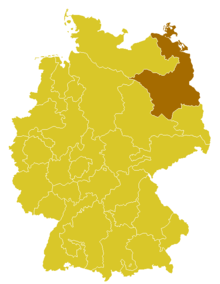 The future in Berlin. As archbishop in the German capital (with equal pastoral responsibility for the states of Berlin and Brandenburg, as well as eastern Mecklenburg-Vorpommern), Archbishop Koch will increasingly be at the heart of the action for both state and Church. In a reflection of recent political history after the reunification, when Germany’s political institutions moved from Bonn to Berlin, the German Bishops’ Conference has long been considering moving their offices to Berlin as well. The Papal Nuncio, Archbishop Nikola Eterovic, also resides in that city. As mentioned above, six of his predecessors (including the five immediate ones) were made cardinals, so we may see a second Cardinal Koch (in addition to Kurt Koch, the president of the Pontifical Council for Promoting Christian Unity) at some point. Archbishop Koch is young enough to wear the red with influence. But even in purple he will have his work cut out for him.
The future in Berlin. As archbishop in the German capital (with equal pastoral responsibility for the states of Berlin and Brandenburg, as well as eastern Mecklenburg-Vorpommern), Archbishop Koch will increasingly be at the heart of the action for both state and Church. In a reflection of recent political history after the reunification, when Germany’s political institutions moved from Bonn to Berlin, the German Bishops’ Conference has long been considering moving their offices to Berlin as well. The Papal Nuncio, Archbishop Nikola Eterovic, also resides in that city. As mentioned above, six of his predecessors (including the five immediate ones) were made cardinals, so we may see a second Cardinal Koch (in addition to Kurt Koch, the president of the Pontifical Council for Promoting Christian Unity) at some point. Archbishop Koch is young enough to wear the red with influence. But even in purple he will have his work cut out for him.